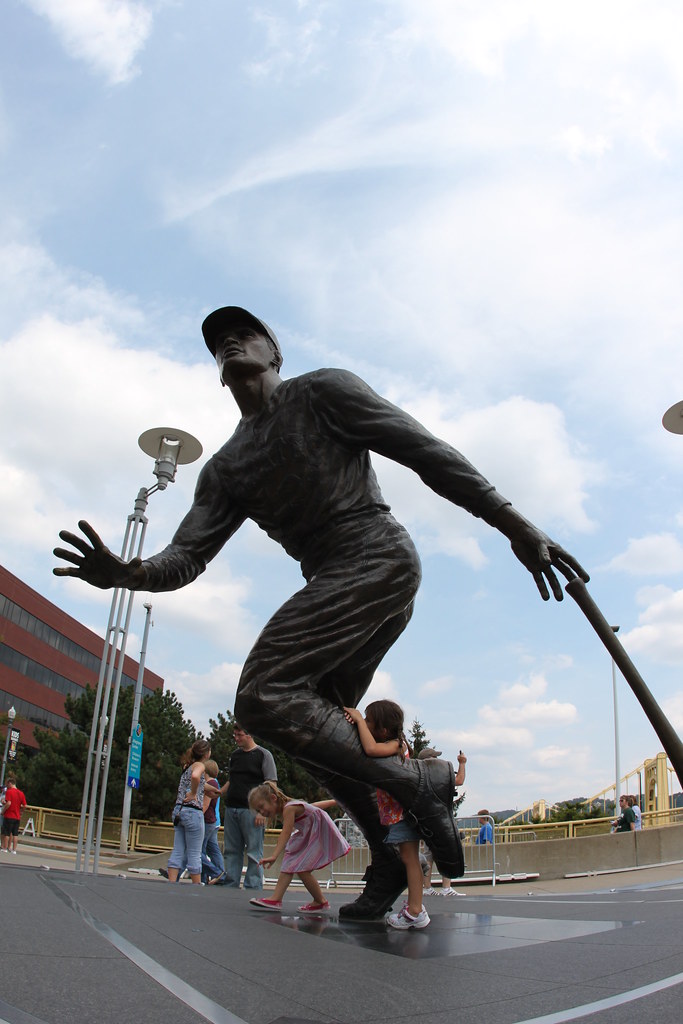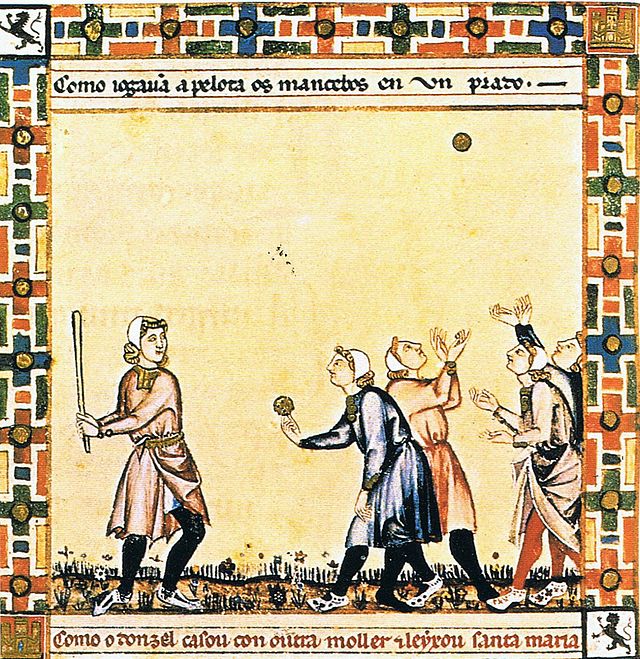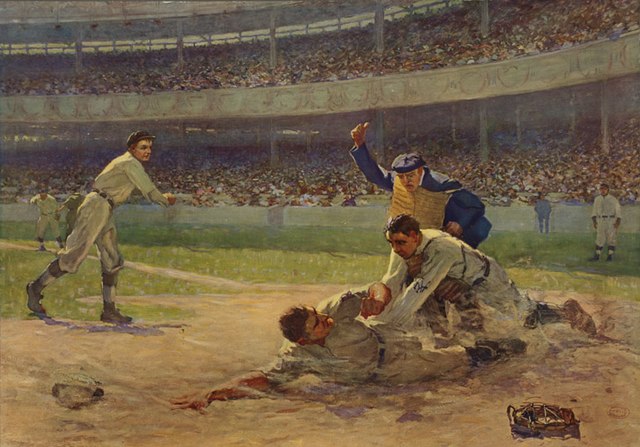

Dr Kyle Rapinchuk is Associate Professor of Christian Worldview at the College of the Ozarks in Point Lookout, Missouri, USA.

As an American, I am not always privy to what outsiders think of our country. When the opportunity arises to speak to someone from another country, I occasionally ask what their country thinks about America. The answers are varied, as one may expect. When I ask about their own country, I learn many fascinating differences in culture and values. I also almost universally learn that football (what we Americans call soccer) is a unifying feature of the nation. Whatever other challenges face a nation, the nation gathers together in support of its national football team. For Americans, our defining legacy in the sports world has always been baseball. But beyond our national spirit, baseball also teaches a more universal and lasting lesson. In this essay, following the model of the great British author G. K. Chesterton’s Tremendous Trifles, I parse meaning for the Christian life from the wonderful game of baseball.
Baseball, in all its beauty, but especially in its pace of play, reveals to us the dangers of the American pace of life. The pace of American life has become polarized – non-stop busyness defines our work and family life, then any time off is spent gazing passively into a screen. We make no time in American life for introspection; no time to reflect and change for the better; precious little time for genuine human friendship. This lifestyle, I believe, is the greatest threat to the future of baseball – and flourishing in American society. Baseball has spent at least the last decade fending off the criticism that the pace of play is too slow. Games now take on average over three hours and people don’t have the time for such dawdling. With increasing frequency, people tell me baseball is boring and lacks excitement. Such a criticism seems almost inevitable for a culture that demands no silence, no moment of waiting without a smartphone screen, and then collapses into subhumanness in front of a screen instead of getting much needed sleep, time for contemplation, and genuine rest.

But baseball is not the problem – our schedules are. Baseball, in fact, is the solution. The pace of baseball, I propose, ought to be the pace of our lives. The moments in baseball that seem boring to most are in fact the most profoundly important moments of the game. Take, for instance, the time between pitches. One proposal in recent years to shorten baseball games is to create a pitch clock, similar to the shot clock in basketball. Since an average MLB baseball game now sees around 295 total pitches, one second saved per pitch would save up to five minutes of game time! But the more important factor is not in saving five minutes – we would be much better people if we accepted that most of a baseball game is the time spent between pitches – rather, we ought to use our time to reflect on the meaning of this time “in between.”
Every pitch starts with a decision. The pitcher and catcher must agree upon a pitch to throw lest chaos (and likely injury) ensue. The dynamic between a pitcher and a catcher alone could serve as the source for a book, but here I’ll only emphasize that the decision is a mutual one, even if one exerts more authority in the decision than the other. Once the decision is made, the pitch is executed. The batter now has the responsibility of decision making. Should he swing or not? That decision is made in an insanely miniscule 0.4 (or less!) seconds. Upon decision, the hitter must decide how, when, and where to swing based on his identification of the pitch’s initial location, speed, and rotation. Somehow a rounded bat must meet a round ball in a precise location at a precise time for any chance of success. The ability of a hitter to execute his task seems infinitely harder than the pitcher’s, which is why Hall of Fame players are only successful at reaching base 3.5 or 4 times out of 10. All this is fascinating to me.

But next, after the pitcher and batter have made their decisions and executed their tasks to the best of their ability, another pitch is thrown. In the interim between pitches is not the boring addition of wasted seconds, but the whole meaning of life. Depending on the result of the pitch, one or both players often recognize their own failure: a missed location, giving up a base hit, a poor swing, a failure to swing at a hittable pitch, or a dozen other regrets. Upon recognition of this failure, the player is given the necessary time to reflect and repent. The player can alter his plan and his attitude, make an adjustment, and repent of his misjudgement, lack of execution, or failure to succeed. Having repented, the player may now take a breath and reorient. Having repented of doing poorly, the player may now reorient himself to a successful outcome on the next pitch. Having reoriented to the goal, the player must refocus by visualizing successful outcomes and removing distractions to his task. With that, the players repeat the decision process and do it again.
Recognize. Reflect. Repent. Reorient. Refocus. Repeat. This is the boring part of baseball, but it proves to be the meaning of life, especially for the Christian. Recognize our failure. Reflect upon how we got there. Repent of our sin. Reorient to Christ. Refocus on our Christian vocation. Repeat. Again, and again, and again. And yet, we so often fail to live the Christian life in this way because of the busyness of our lives. We lack a Sabbath; we lack times of reflection and contemplation; we don’t pray. What if instead of trying to fix baseball, we started letting baseball fix us. What if, instead of filling every boring moment of life with social media, “news,” and noise, we decided to fill those silent moments with the rhythms of baseball – recognize, reflect, repent, reorient, refocus, and repeat. Perhaps if we lived our lives like a game of baseball, we might remember that the goal is for as many of us as possible to reach home.